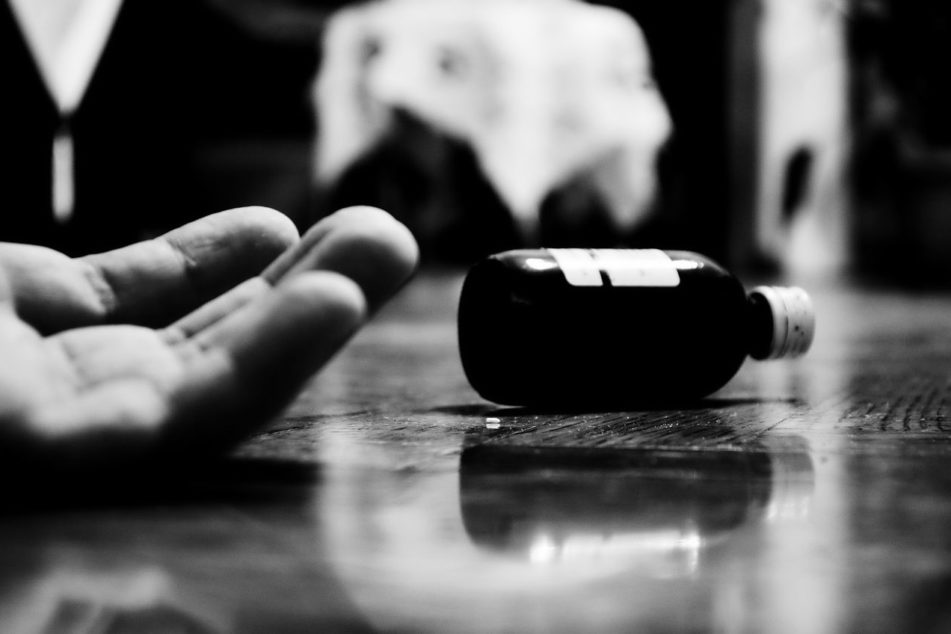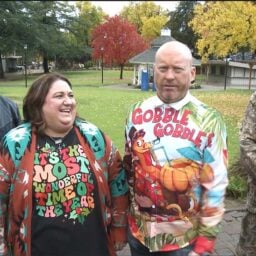Jillian Jacobson, 31, taught photography at El Dorado High School in Placentia, California. She was a very popular and well-liked teacher by both the students and faculty. She was also married to her 34 year old husband.
Jillian had formed that bond through joking around, being a mentor, creating a special closeness with those she came in contact with and by seemingly confronting her life’s own troubles head on. She had spoken with students many times over the past couple of years about her father’s suicide and had counseled one class of students just a few weeks ago, saying if they ever felt down, they should ask for help. Jacobson did a weeklong unit on depression for freshmen, emphasizing that suicide wasn’t the answer to anyone’s problems and it affected many people greatly.
On Monday of last week, students arriving to their morning photography class found the door to Jacobson’s room locked. Thinking their teacher was late, the students asked another teacher to unlock the door. When they opened it, they found Jacobson hanging from the ceiling. Jacobson’s stunning death stood in stark contrast to the teacher students said they knew. They described her as someone cheerful and trusted who inspired in many a love of photography. She lived in nearby Anaheim in a quaint, gray home with a white picket fence.
It is for these reasons that I am supposed to feel sorry for the pain Ms. Jacobson must have been feeling. The horror of what lived inside of her, I am told, I must have compassion and understanding and sympathy for, and all of us should thank God that we did not fall so far. It is that same clap-trap that is forced down everyone’s throat when we learn about a chronic, habitual addict. I have no sympathy for either and find addicts and those who commit suicide to be the most selfish people amongst us. Yes, even more so than Hitler (might as well get the hyperbole out of the way now).
Intervention Magazine recently did a profile of the common chronic addict, best summed up as follows: Addiction hurts those around the addict most. Spouses, parents, (co-workers, friends), and other family members are left to pick up the responsibilities of the addict, doing more of everything…and bearing the constant strain of the destruction left behind by the addict. Often times, the supporting enablers of the addict are the ones who clean up their mess, and, left to go on too long, the toll is more visible, palpable and measureable on the family and friends of the addict than on the addict themselves.
It isn’t the initial sympathy I am told to have that infuriates me, it’s the thoughtful sympathy that too many engage in and try to force on others.
Of course you should try to help someone that you care about if they’re heading down the road of suicide and/or addiction. It is the most human thing to do; but to what end? That, of course, is a personal decision, but I judge no one who makes it. Whether you simply hand them a phone number and walk away, or you spend years trying to help them manage their challenges, the helping enabler (and that’s what any of us who have experience with this know we are) is never to be blamed or judged. Only the suicidal addict is and should be, and that’s the problem, because we refuse to loudly do so as we must.
The wreckage that these people leave behind them is truly incalculable. In the case of Ms. Jacobson, her suicide is heinous beyond words, starting with the fact that she knew the pain of someone close to her killing themselves. And yet, four years later she cared so little not about just herself, but more importantly, about all of the people in her life, including minds and lives she was trusted to mold and shape, that she did to all of them what her father had done to her. And that is the truth, despite what feel-good apologists want you to believe; those who habitually abuse drugs or commit suicide are not harming themselves, they are harming those around them. The fact that they don’t make that calculation only furthers my disgust.
Whatever horrible sadness Jacobson was feeling is irrelevant to me in stark contrast to the trauma she inflicted on her husband, her family, her co-workers, her friends, and most notably, dozens if not hundreds of teenagers she was supposed to be mentoring. She didn’t care about them at all; if she had, she’d have stayed and fought. Think of the message she sent to so many of them; on one hand, she said that suicide was never the way out, and on the other hand, she took that way out. How does an adolescent mind process such hypocrisy? There’s a reason “actions speak louder than words,” has been an expression since the human race moved beyond grunting.
Spare me your violin-laden sob stories of her pain and that of the addict who says all the right things but just can’t seem to stay straight. Spare me the “life was just too tough for them,” excuses and for the love of God spare me the “you’ll never know the pain they were in,” crap. Everyone who lives long enough experiences depths of pain, trauma, and challenges beyond their own personal comprehension and yet the overwhelming majority of us don’t turn to destructive behaviors that destroy other peoples’ lives with nary a scintilla of personal responsibility in the aftermath.
Habitual Addicts lie, cheat, and steal from everyone, literally everyone, until they have run out of people to do such to. And then they find new people or ways to feed their weakness, for that’s what it is; it isn’t a disease, or illness, it’s a weakness that they choose not to overcome. Just as those who commit suicide do so in the backdrop of their own weakness. The fact that these people “felt there was no other way out,” is of no consequence to me for that further highlights their weakness. There is always, in the United States, a way out, another choice to be made, and a different path to be chosen. Those with any sort of regard for the people in their lives find such avenues. The rest destroy the people they purport to love and care for. Sympathy from me? Negative. Disdain and disregard? Absolutely. Call me whatever names you want for having such a strong opinion, but one thing no one with any intellectual honesty will ever be able to call me is weak, cowardly, or quitter; three words that belong on the epitaph of Ms. Jacobson and all of those who have come before her and will come after.
http://addictions.about.com/od/familyrelationships/a/lyinglovedone.htm









